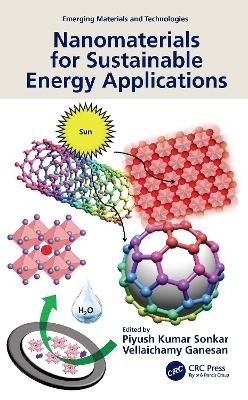
Nanomaterials for Sustainable Energy Applications
CRC Press (Verlag)
978-1-032-07766-6 (ISBN)
This book provides a detailed overview of different devices and nanomaterials for energy storage applications. The application of each nanomaterial is discussed for fuel cells, metal–air batteries, supercapacitors, solar cells, regenerative fuel cells, hydrogen energy, batteries, and redox flow batteries to understand the reaction process and material performance improvement for energy storage devices. In addition, major challenges, case studies, historical, and future perspective are summarized.
Features:
Summarizes state-of-the-art nanomaterials for energy storage and conversion applications
Comprehensive coverage of a wide range of nanomaterials, including synthesis and characterization
Details different energy storage devices, construction, working principles, and major challenges
Covers specific reactions, nanomaterials, and nanocomposites via audio–video slides/short films
Includes case studies pertaining to development of energy storage devices and major challenges
This book is aimed at researchers and graduate students in chemical engineering, chemical sciences, nanomaterials, and energy engineering/conversion.
Dr. Piyush Kumar Sonkar has received his BSc (Chemistry), MSc (Chemistry) and PhD (Chemistry) degree from Banaras Hindu University, India. He is presently working as an assistant professor in Department of Chemistry, MMV, Banaras Hindu University, Varanasi, India. His research interests include nanomaterials, nanocomposites, fuel cells, electrochemical devices, supercapacitors, biosensors, chemical sensors and new materials. He has published more than 45 international and national research papers in various reputed peer reviewed journals. He has published six book chapters. He presented his research work in various international/national seminars/workshops and conferences. Dr. Vellaichamy Ganesan received his BSc and MSc in Chemistry from Madurai Kamaraj University and Bharathidasan University, India, respectively. Later, he received his PhD (2000) from Madurai Kamaraj University. After completing postdoctoral research in the United States and France, he is now continuing his research in the fields of nanomaterials, electroanalysis, electrocatalysis, development of fuel cell materials, and photocatalysis in the Department of Chemistry, Banaras Hindu University, India as a professor. He is a recipient of IUSSTF fellowship (India–USA), Commonwealth Fellowship (UK), and DAAD Fellowship (Germany). He has published more than 110 research papers in international/national journals.
1. Introduction: Nanomaterials for Sustainable Energy Applications. 2. Fuel cells: Engineered Nanomaterials for Improved Fuel Cell Performance and Power Generation. 3. Polyoxometalate Induced Nano-Engineered Composite Materials for Energy Storage-Part 2: Supercapacitor Applications. 4. Supercapacitor: Carbon Based Nanostructures for Supercapacitor Application. 5. Designing hollow structured materials for sustainable electrochemical energy conversion. 6. Polymer-based Nanocomposites in Energy Storage Applications. 7. Carbon Quantum Dots. 8. Mesoporous silica-based materials for energy storage applications. 9. Metal-Organic Frameworks.
| Erscheinungsdatum | 02.09.2023 |
|---|---|
| Reihe/Serie | Emerging Materials and Technologies |
| Zusatzinfo | 8 Tables, black and white; 51 Line drawings, black and white; 37 Halftones, black and white; 88 Illustrations, black and white |
| Verlagsort | London |
| Sprache | englisch |
| Maße | 156 x 234 mm |
| Gewicht | 590 g |
| Themenwelt | Naturwissenschaften ► Physik / Astronomie |
| Technik ► Elektrotechnik / Energietechnik | |
| Technik ► Maschinenbau | |
| Technik ► Umwelttechnik / Biotechnologie | |
| ISBN-10 | 1-032-07766-2 / 1032077662 |
| ISBN-13 | 978-1-032-07766-6 / 9781032077666 |
| Zustand | Neuware |
| Haben Sie eine Frage zum Produkt? |
aus dem Bereich


